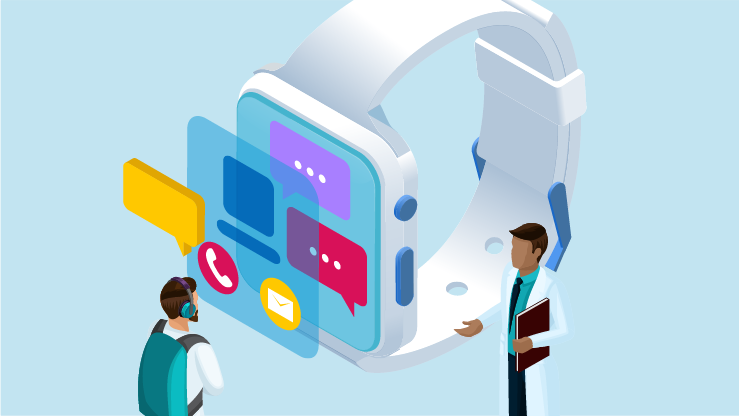As healthcare technology becomes more advanced and available, the way that healthcare professionals and organizations interact with patients is changing.
While in-person interactions will always be central to the industry, the rapid onset of COVID-19 caused a digital health revolution practically overnight. Now we’re emerging into a new era, where technology walks hand in hand with traditional approaches – elevating the overall quality of care. But as ever, with new technology comes new risk.
As the digital health landscape continues to rapidly evolve, here are top trends that today’s providers need to be aware of.
Technology evolution
It was the Dutch philosopher Desiderius Erasmus who first said ‘prevention is better than a cure’, a phrase that’s become a fundamental principle of modern healthcare. Digital tools are already making a huge difference in predictive medicine, and will only develop further to put clinicians on the front foot in the effort to prevent disease and deliver a healthier future.
Digital tools will also play a huge part in staff training. It’s easy to see how technology such as virtual reality can make training more realistic and effective, enabling clinicians to simulate procedures before performing them in real life. Not only will this improve patient outcomes, but it will reduce the risks associated with new and innovative approaches.
In everyday life, AI is a gamechanger and it’s no different in healthcare. AI is already showing its worth in diagnostic procedures, such as analyzing scan images, and its influence will only grow.
What’s certain is that, as AI takes on a bigger role, the liability lines between practitioners and digital tools will increasingly blur. To safeguard against risk, healthcare will need to clearly define the responsibilities of technologies and humans.
Cyber risks
As healthcare brings technology into its practices and procedures, it also introduces a higher level of cyber exposure, not least in the increased likelihood of patient bodily injury that can occur due to ransomware attacks or technology failures.
Policies with a one-dimensional bodily injury trigger will become increasingly problematic. Insureds will need to examine their options closely – do such triggers provide the cover required or leave them exposed?
Elsewhere, as healthcare providers handle personal and sensitive patient data, and use technology that’s integral to their services, they’re a top target for cyber criminals. Being able to prevent, respond and mitigate cyber attacks will be vital in maintaining operations, treating patients and raising the overall quality of care.
Regulations and investigations
The regulatory landscape tends to move only one way: towards increased complexity. Already regulators and legislators are giving greater scrutiny to the prescription of controlled substances, and telehealth providers will need to secure and maintain more specific licenses to avoid falling foul. These licenses will need to be updated as new regulations come into force and will also have to meet the requirements of different jurisdictions if providers operate across different territories.
Facing tightening regulations, healthcare providers will find themselves at the center of a growing number of investigations. Just look at the Medical Board of Australia introducing new guidelines on telehealth consultations, covering triage, diagnosis, treatment and preventive health services - a sign of things to come. The guidelines come into effect on 1 September 2023 and highlight the need for providers to assess and evolve their own operations to remain compliant.
Today, healthcare is a hybrid of traditional and digital methods. As technology continues to advance, the two will only become increasingly intertwined.
For more information about the ever-evolving world of digital healthcare, please get in touch at ehealth@cfc.com.



